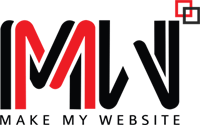Today, Google is the go-to source of information for us all. But the moment you enter a search query, not one but hundreds and thousands of responses appear on your screen. You can just scroll on and on and never reach the end of the SERPs (Search Engine Result Pages). With such an influx of content, how do you determine what to trust and skip? In a sense, it’s quite easy – you simply restrict yourself to the results that appear above. They must be placed there for a reason, right?
Ever wondered what Google’s ranking criteria is? Google uses over 200 ranking factors to determine which content should take the top spot. This includes factors like content quality, backlinks, UX, SEO, mobile responsiveness, domain authority, etc. Today, we will discuss E-E-A-T (Experience, Expertise, Authority, and Trustworthiness), an overarching principle that Google uses to evaluate the quality of content across these multiple ranking categories.
Is E-E-A-T a Ranking Factor?
No, E-E-A-T is not precisely a ranking criterion. The four pillars, namely Experience, Expertise, Authority, and Trustworthiness, guide Google’s algorithms and human quality raters to assess content quality. Based on the assessment, Google ranks your content. E-E-A-T is a core quality framework that shapes how other ranking signals (like content quality, backlinks, and user experience) are interpreted and weighted.
So, if you want your website or content to rank well on Google, you should be familiar with E-E-A-T. Let us guide you through. With us, you can review everything you need about E-E-A-T and how it impacts SEO and your rankings.
History of E-E-A-T: Then and Now
Originally E-A-T (Expertise, Authority, and Trustworthiness), it was first introduced in Google’s Search Quality Rater Guidelines in 2014. This framework was launched in line with Google’s efforts to streamline the quality of online content and prevent the spread of misinformation. It primarily focussed on content from the YMYL (Your Money, Your Life) category, like health, finance and safety, as they can directly impact the reader’s financial, mental and physical well-being.
In 2018, the Medic Update presented a series of algorithm updates with the E-A-T principle at the forefront and websites with poor E-A-T signals saw significant drops in rankings. It was furthered in 2020 when E-A-T was integrated into Google’s Core Algorithm. In December 2022, another E-Experience was added, making it E-E-A-T.
Understanding the Four Principles: Experience (E), Expertise (E), Authority (A), and Trustworthiness (T)
Experience (E)
Content written from first-hand experience will always be superior to one merely summarised from other sources. While that may be the case, do you think subject matter experts write most content that is available on the internet? Sadly, no. With E-E-A-T’s focus on ‘E’ for Experience, Google aims to change this scenario or at least prevent content written by inexperienced writers from ranking high on the web.
First-hand experience adds authenticity and practical knowledge to any narrative, making it more reliable. Be it a travel blog or a product review, if you haven’t visited the place or used the product yourself, you can’t indeed provide a valid experience. Such content can spread misinformation and lead readers to make decisions that might negatively impact them. That’s why the Experience factor becomes a key indicator of quality content.
You can ensure your content stands tall on Experience (E) font by –
- Adding author bios mentioning relevant experience.
- Adding personal insights into your blogs.
- Using custom videos and photos for personalisation and relevance.
Expertise (E)
Expertise becomes extremely valuable when it comes to content readily available online for anyone to view, especially if it belongs to the YMYL (Your Money, Your Life) category. For instance, inaccurate or uninformed information provided by non-medical professionals can potentially mislead readers and result in serious consequences. That’s why Google considers Expertise as a factorlayou that could determine the validity and credibility of any content and ensure it is accurate, well-informed, and reliable.
To excel on this front, the writer must have formal qualifications, certifications, or professional training in the subject. Beyond formal qualifications, the writer should have hands-on experience in the field. Depending on the type of content, the credential levels vary. For instance, you would need professional credentials to offer medical advice, but anyone can write a blog on basic home decor options.
Here are some key signals that Google uses to measure Expertise –
- Author credentials and qualifications (bio, certificates, degree, professional experience).
- Content accuracy and depth (well-researched, factually accurate, citations, references).
- Online reputation of the author or the website ( history, reviews, mentions).
- Author and publisher transparency (author’s/publisher’s name, contact details)
Authority (A)
A level beyond Expertise is Authority. It signifies the author’s reputation or the publication/website within the given field and if they are well-regarded within their niche. While Expertise reflects the author’s skill, Authority reflects how widely their Expertise has been recognised in the industry. For instance, a blog published by a legal firm featured in prestigious legal journals will have higher authority and credibility.
Here’s how you can improve the Authority quotient of your content –
- Secure backlinks from authoritative sources.
- Get recognised by leading players within your industry.
- Ensure the author has proven their skills through awards and accreditations.
- The author and publisher should maintain a positive reputation across forums, review platforms, and social media.
Trustworthiness (T)
Last but not the least is “T” Trustworthiness. It can be divided into two heads –
- Can readers always trust the content to be accurate, honest, and free from any discrepancies?
- Is the website secure, transparent, and clear about who is behind the content?
Trustworthiness can’t be established in a day; it can only be built over the years through accurate, transparent, and reliable content and service delivery. And if you falter even once – whether by publishing substandard content, sharing misleading information, or engaging in practices that compromise reader trust, the damage can be swift and long-lasting. Once you establish your trustworthiness, you will become the go-to source for all your readers and potential customers.
You can establish trustworthiness by –
- Ensuring factual correctness and quoting credible sources.
- Adopting transparency – disclosing source and author.
- Using HTTP encryption and protecting user data.
- Delivering purposeful content that adds some value to the reader’s life.
- Presenting your privacy policy, terms of use, refund policies, etc.
- Gathering favourable reviews and testimonials.
Google measures the trustworthiness of your content or site through diverse website signals (HTTPS and privacy policy), content signals (accurate data and citations) and reputation signals (user reviews and third-party recognitions). So, work on all these fronts and establish a trustworthy online reputation.
Tips to Improve E-E-A-T For SEO
Be Vocal About Your Strengths
As we already discussed, Google prioritises Experience, Expertise and Authority. And these three can be best established by making your credentials and that of your author known. If you have been in the industry for over 25 years, have secured a certification/award, or if a leading publication has quoted your content, make sure such information stands out and immediately captures the reader’s attention. Add author bios and professional profiles and ensure your content has a face.
Earn High-Quality Backlinks
When it comes to backlinks, it is essential to adopt a strategic approach. You must build backlinks from reputable and authoritative websites relevant to your industry. Also, earn links naturally by publishing quality content as spammy or low-quality backlinks will further lower your reputation.
Prioritise Website Security and User Privacy
User privacy is one of the most serious concerns in this digital world. So, suppose a user visits your website and in any way feels that their personal information is being compromised. In that case, they will immediately leave and never engage further with your website or business. To prioritise website security and user privacy and display your commitment, use HTTPS encryption and clearly display your privacy policies and terms of service.
Create Accurate, Well-Researched Content
When it comes to content, always prioritise quality over quantity. All the content you publish on your website should be factually correct, well-written and filled with credible sources, data and references. Once you post the content, you aren’t done. You have to regularly check and update whenever required. Also, avoid using clickbait or misleading content that might break your readers’ trust.
Optimise User Experience (UX)
Users will never trust a sloppy website that takes forever to load or is hard to navigate. Also, user experience is one of Google’s key ranking factors. So, you must optimise your user experience by ensuring fast-loading, mobile-friendliness, improved navigation, and the prevention of unnecessary ad popups. A professionally built website that delivers an exceptional user experience every time is sure to be trusted by users and preferred by Google.
Optimise for YMYL
If you create content for the YMYL category, ensure qualified experts author it. If you don’t have an in-house team specialising in these subjects, hire an experienced writer and have them contribute to your website. When you add a trustworthy name to your website, you generate a significant amount of E-E-A-T signals that help you boost your search ranking.
Prioritise E-E-A-T and Elevate Your Content Strategy With Us at MMW
At Make My Website, we understand the critical role that E-E-A-T (Experience, Expertise, Authority, and Trustworthiness) plays in building content that ranks well on search engines and earns your audience’s trust and confidence. With us, craft factual and accurate content and boost your authority, expertise and credibility within the digital space.
Connect with us to know more about how we can help you create content that delivers.



















